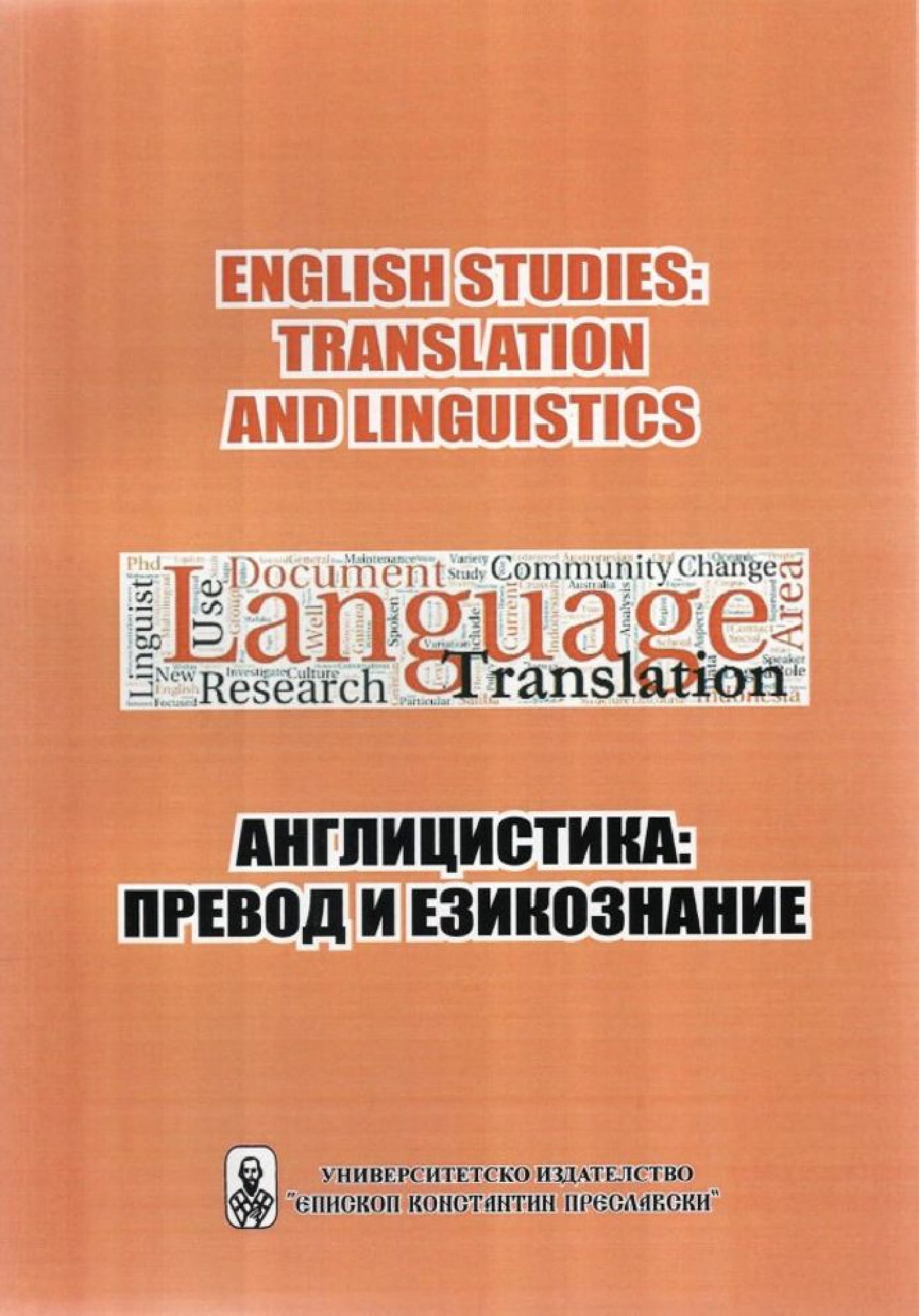Translation, Meaning, Corpora
Translation, Meaning, Corpora
Author(s): Temenuzhka Seizova-NankovaSubject(s): Foreign languages learning, Computational linguistics, Descriptive linguistics, Philology, Translation Studies
Published by: Шуменски университет »Епископ Константин Преславски«
Keywords: source and target language (SL-TL); linguistics; types of meaning; empirical corpus data; Bulgarian learners of English perspective;
Summary/Abstract: The paper deals with problems of translation based on the assumptions that ‘translation should preserve meaning’ and that meaning is unconscious (Jackendoff 2012:47). The center of attention are some types of meaning. Corpus data is used to provide empirical evidence and facilitate Bulgarian learners of English in the translation process and the decision making. Solutions are not easy to come by. Some issues are raised with sentence meaning, complementation patterns of behavior, collocational meaning, meaning of compounds and reflexivity, etc. Lexemes are in principle polysemous. But it is lexical items that exhibit different collocational properties and these pose problems for foreign language learning. Two types of valency, qualitative and quantitative, are discussed. Some concrete examples are given as an illustration.
Journal: Studies in Linguistics, Culture, and FLT
- Issue Year: 1/2014
- Issue No: 1
- Page Range: 63-78
- Page Count: 16
- Language: English, Bulgarian

